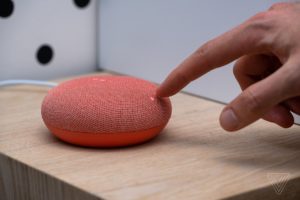I was intrigued when I was told Spotify is offering its premium customers a Google Nest Mini, for free, in September 2020. Of course, it was in some selected countries with the usual fine line of the offer being valid till the end of September or till stocks last. While I was still thinking over whether I should take the plunge and finally invite either Google or Alexa into my house, the rest of the world had ordered and the offer closed in under four days due to stocks being over.
It was the second such offer I had recently encountered and one of the many being thrown around to entice users, all over the world. The monetary value of the Google Nest Mini or Amazon Echo Dot individually are not much and they are being heavily discounted or actually given away for free, as part of a partner deal. With their ease of use, they are being touted as the next cool thing to have in our house and clearly, given the response, it is picking up in popularity.

However, if large technology companies are so keen to have their equipment in our house that they are willing to give them for free, maybe we should be asking the question why, rather than jumping at the first opportunity. After all they are not here to do charity and incur loss, but are sure to recoup it in some way.
On the surface of it, it seems simple enough. People are slowly moving away from web browser based searches to voice searches. Google and Amazon are the largest players in the market and they are keen on having their product readily available to fulfil this need.
Then there is the profit from our loyalty to their product environment. Let’s assume we order an Amazon Echo Dot speaker and Alexa comes into our house. She will make our life comfortable, become part of our family and fade into the background. When we order stuff for shopping, by default it will order from Amazon store. No more Google as the middleman to compare and shop and then maybe reach it. Amazon music will become our default playlist and Amazon algorithms will control our future shopping, news and music suggestions. If we go with Google, well then, they will harvest our data and push us into their brand of music and services. It is pure and simple business.

You may say, so what? Well, the issues do not stop there, do they? In this instance there is a heftier cost in terms of our data, our privacy and our mental malleability. The companies survive on our data and use it to make money, through mapped products and service ads.
The most glaring issue staring at us is the security of our data and privacy rights, what with the speaker always listening in to our conversations. Security is preventing the unauthorized access of our data and privacy is about the rights we have to control the use of our personal information.
The recent incident revealed by independent researchers around the Alexa bug that let hackers install or remove apps on a device without the owners’ knowledge, just by one click of a malicious link shows the security vulnerability. Sometimes the companies themselves share our data, causing breach of our privacy, albeit via our consent, courtesy the initial long T&C most of us agree to without reading.

In the past they have let their employees and third parties listen into conversations “to improve response”. When it was revealed that Apple was letting third party contractors listen in, there was a backlash. Apple has since brought in an updated policy that prevents third party access while Google and Amazon have let users “opt out” of this feature. So, unless you have manually disabled it, someone, somewhere could be still listening to your fights and your sweet nothings. Would we have someone physically sit at our house and listen to everything we say, record it and share it with others randomly? Is that ok? If not, why should we allow it virtually?
Assuming we do manage to opt out of all “human review”, aka human listening by opting out of the “Help Improve Amazon Services and Develop New Features” and regularly monitor and delete your chat history, we still have to think of the influence on us by the AI algorithms. They have the power to shape our very thoughts and outlook through AI algorithms.

When we ask for news Alexa tell us what it thinks will interest us, based on analysis and Amazon’s set preference and views, unless we ask specific questions. The more you choose the more data they gain and over time this means our news, music, shopping and even our cooking is being slowly driven by the choices subtly made by us and it. For example, if I search for Priyanka Chopra’s latest book, it will keep showing me news about her, sometimes at the cost of other information.
I personally do not want to be typecast based on a curious search, even politically, and would much rather have the freedom to see various options before I form my own personal view. Using Alexa or Google takes it away from me and I am an adult. Imagine the impact this has on young kids, whose brain and personality are still developing. Will it limit and channel their experience in a certain direction? One choice from them on classical music can lead to Alexa bombarding them with repeats of similar types of music. However, an accidental negative word search can also lead them down a rabbit hole where they feel the whole world thinks that way. That is the power and fallacy of AI induced suggestions and it can be extremely dangerous for kids.

Alexa and Google or any voice assistant for that matter have their advantages and can make life easy via voice commands. We are surrounded by tech options to help monitor our loved ones and our possessions, to help alleviate our minds of anything untoward happening to them. We just need to be cognizant of the risks, use them safely and always monitor and control our usage. However, if we let them harvest our data, influence us with their algorithms and typecast us then we make ourselves vulnerable both physically via security leaks and mentally through subtle manipulations.
While it may be fun to install and hear it recite the news over breakfast and tell us jokes or play music over dinner, is it worth the tradeoff? It may have a cute sexy lovable voice, as agreed by a small set of men in a survey, but it is anything but cute in repercussions, unless managed. It is a lovely device to have and interact with but remember it’s a technology not a person with morals, hence needs to be controlled with appropriate settings. So, the next time you think of using or even inviting Alexa or Google over to your house, please weigh the risks versus the need and learn to actively manage your privacy before taking the plunge.



